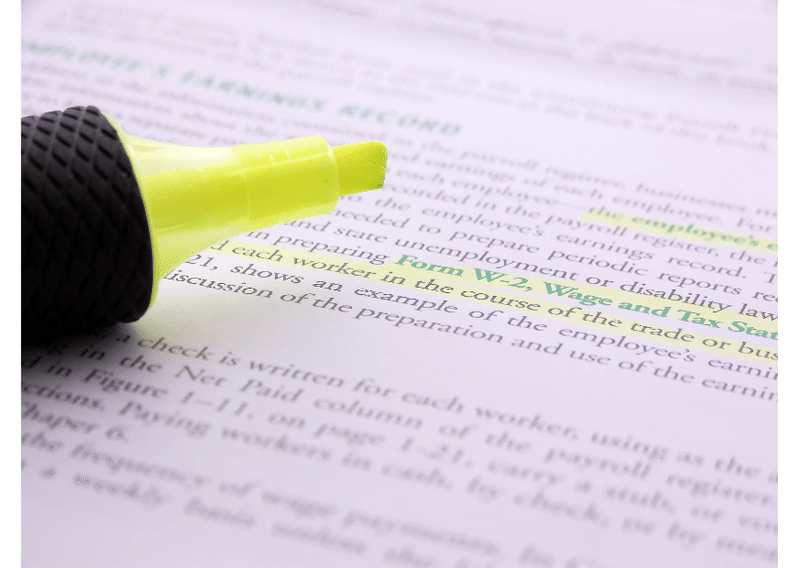
【カビルのつぶやき】「学校のテストってどれぐらい大事なの?」
*See below for the English version.
はじめに
学生生活の中で重要な役割を果たすテストは、季節ごとに訪れます。
自分の得意分野によって、簡単なものもあれば、難しいものもあります。
皆さんはどんなテストに苦戦していますか?
やあ、またまた僕だよ、カビルだよ。
かんたんな自己紹介はここでしています。
今日は学校のテストについてお話しましょう。
また、テストをうまくやっていく方法についてもお話します。
小学生、中学生なら、悪い成績でもあまり影響はなく、成績も上げることもできます。
しかし、高校の入試ではかなり苦しむことになります。
だから、後々苦しむよりも、勉強だけでもしておいたほうがいいですよ。
ネパールでの「テスト」
僕が日本に来たのは中学校2年生のときでした。(そしてネパールと日本で2回中学校2年生をしました…)ネパールでのテストはかなり量が多くて、日本と比べてテストの受け方も違っていました。
マークシートや空欄を埋めるようなテストは無くて、すべて自由回答式で、できるだけたくさんのことをルーズリーフに書いていくようなテストです。そして、答えを書くスペースや紙が無くなったら、先生に追加の紙をもらうような感じでした。
書く量がとにかく多いので、テストされている教科について自分が知っていることを片っ端から全部書くことや、そのトピックに対して自分が思っていること・考えていることの意見を問われていることも多いです(2ページぐらいの答案だったらまるまる暗記している人もいました)。
書く量のこともありますが、間違えやスペルミスに関してとても厳しく、1つのスペルミスにつき減点されます(先生によって減点されるポイントが違っているのを覚えています)。
はじめての日本でのテスト
日本ではじめてテストを受けたときは、「あ、みんなテストしている」と気づいて受けはじめたことを覚えています。テストの雰囲気ややり方が全然違くて、最初は受けている感覚がなかったです。
日本に来て最初のころは、日本語が分からなくて苦労していました。そんな中で覚えているのは、化学のテストで日本語の部分は全部飛ばして読んで、自分の理解できる英語で書いてある化学式だけで質問を解いていた記憶があります(元素は英語でも日本語でも一緒なので助かりました)。

日本とネパールのテストの違い
私が日本とネパールのテストで一番感じた違いは、「日本のテストは出席や授業内での小テストなど、色々なところで加算される点数の積み重ね」が自分の成績になるということでした。
一方ネパールでは、テストの点数だけで自分の成績が決まるという点でかなり大きい違いがあると思いました。逆に言えば、僕が最初に日本の学校に通い始めたときは、授業に出席するだけで点数がもらえるということに、一番の驚きを感じました。
ネパールでは、期ごとのテスト(年に4回あります)さえ点数が取れれば良いという文化があるので、生徒の授業への参加や出席に多くを求めていない部分があります(もちろん、授業に出て勉強している人はテストの点数も良いのでしょうが)。
個人的には、どちらが良いということは無く、どちらの場合も授業の中でできるだけ頑張って、出来るだけ学校の外に勉強を持ち帰らないことを徹底していました。宿題や課題は学校で終わらせて帰って、残りは学校に少し早めに来て授業前に終わらすことを自分のルーティンとしていました。
日本のテスト勉強の上手な進め方
さて、僕が日本で身につけたテストの上手な進め方を簡単ですが、紹介します。海外にルーツを持つ人のちょっとした参考になればと思います。
試験日の前日に勉強しても合格できない科目があります。
特に歴史はそうです。覚えることが多すぎて、何を絶対に忘れてはいけないのか、何が一番テストに出ないのかを整理していないと、テストにでてきたときに困ってしまいます。なので、すべての授業を真剣に受けて、ノートを取ることがとても大切です。
逆に言うと、ノートを取っていたら、日本のテストはやりやすいです。学校のテストは、ほとんどの場合、担当の先生が授業中にテストに出そうなところをヒントに教えてくれるので、それをメモしておきましょう。
ノートの重要な部分には蛍光ペンで印をつけましょう。
また、色の違うペン/鉛筆を使ったり、付箋を使ったりして、いろいろなものにラベルをつけておくと、ノートがとてもきれいになります。

不安かもしれませんが、頑張ってください!テスト練習も大事ですよ。
----------------------------------
Introduction
Tests are an important part of students’ lives and they come to visit every season, some are easy and some are hard depending on what you’re good at. What tests do you struggle with?
Hey, it’s me again, Kabir. Let’s talk about school tests today and I’ll also share my tips on how to do well in them.
Here in Japan, while in elementary school or middle school, bad grades don’t really affect you too much and you will grade up regardless of bad grades so you might think, what's the point of studying then? The answer is, for your high school’s entrance examination and then university entrance examinations. You will simply not be able to keep up with your studies later on so it’s better to just study than to suffer later on.
How my "tests" were back in Nepal?
I came to Japan at the end of my middle school 2nd year and I ended up repeating a year here because in Japan kids go to grades with the same age group but I didn't mind reapeating a year as I got enough time to adjust very well here with an extra year making my high school life easier. Compared to Japan, school tests in Nepal was a lot intense and very different.
There is no test to fill in the mark sheet or blanks, all are open-ended, and it is a test to write as much as possible on loose-leaf like answer sheets. You request an additional answer sheet from my teacher if you run out of space .
Since I write a lot on my tests, I am asked to write everything I know about the subject being tested and what I think and think about the topic. In many cases some of my friends used to memorized the answers two pages long).
It is a lot of writing, while also being careful not to make any grammar mistakes or spelling errors. Points are deducted for each misspelling, grammar mistakes and every teacher has their own way of deducting points for mistakes on tests.
How to better study for tests
You cannot study the day before the exam day and then pass it for some subjects especially history. There is just too much to remember and if you haven’t sorted out what to absolutely not forget and what is the least likely to appear in a test. So, it’s very important to take all your classes seriously and take notes. Your school tests are mostly put together by your subject’s teacher who will tell you hints during class on what’s very likely to appear on tests which you must take notes of. Using a highlighter to mark important parts on your notes.
You could also use different colour pens/pencils or use sticky notes to label different stuff and make your notes very clean.
First test in Japan
When I took the test for the first time in Japan, I remember starting to realize that "Oh, it's a test?" The atmosphere in the class and the method of answering the test was completely different from what I was used to so I didn't feel like I was taking at all the first time. As a student who had always had very good grades, I got very anxious about my studies when I got home after the school ended that day.
I remember that the first test I took was a chemistry test. I looked through the whole test, everything was in Japanese, there were diagrams I knew and could definitely solve if it were in english which was very saddening. At the end,I could only answer the blanks in the periodic table question because chemical formulae written in English alphabets which was the only stuff I could understand. Better than nothing, I thought.
Difference between Japanese and Nepal test
The biggest difference I felt between the Japanese and Nepalese tests was that your final score in a subject in Japan is the total of points from points you get from attendance, class test, homeworks, class participation and other stuff that the teacher decides which was very new to me.
Whereas in Nepal, it's all tests. When I finally understood Japanese school system and realized I was getting points just by appearing in class, I got very happy and thought it was ridiculous.
In Nepal, students need to score at a test (a test every season therefore 4 tests a year) to affect their grades and you do also get a little points from doing reports but it's very rare (unless you're a university student).And your attendence is well just your attendance count.
How to better study for a Japanese test ?
Now, I would like to tell you a few helpful tips on how to prepare for tests in Japan. I hope it will also become a little reference for people who have roots overseas.
Ususally, I like to study a day before the exam or on mornings of the exam day because I tend to forget things I don't use in my daily life. But some subjects just can't be cleared the same way and need some extra preparations in advance.
Especially subjects like history. You will need to memo things, pin places that might appear in tests during your classes so you know what to remember for the test and what to ignore. Therefore, it is very important to take your classes seriously and also take appropriate notes.
If you take notes, Japanese tests are easy to do. Most school teacher will give you hints about what's likely to come up in a test and what to completely ignore during your daily classes, so always be ready to take notes of them.
Mark important parts of your notebook with a highlighter. Use colored pens / pencils or sticky notes to label various stuff in your notebook and also make it very understandable when you want to revise what you studied.
Practicing for the test is also very important as it will give you an idea about how to manage your time to get the most points because you won't have unlimited time. You can't be wasting your times solving questions that will take a while to solve when there are other questions that your can finish in an instant, you might end up not having enough time left to answer the question you know. So set a limited time and practice doing a test. It'll also help you be more mentally prepared for the real test.
You might be anxious about your performance in your tests but getting anxious doesn't help at all, keep calm and do your best!
Have a nice day. Good luck on your exams !
